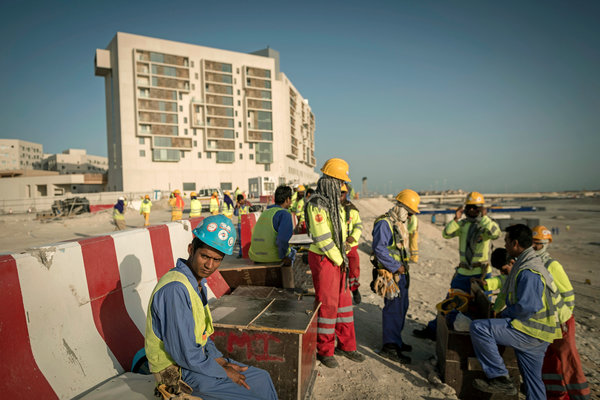Voters in most developed countries feel that their contract with the state is fraying writes Bronwen Maddox in the FT
I can barely think of a meeting I’ve had since September that didn’t begin with jokes about Britain’s newfound instability. I started a job a few days before Liz Truss became prime minister, and the “lasted longer than the lettuce” one has been inescapable. “Three prime ministers in a year!” (Ambassadors from European countries still incredulous at Brexit particularly like this one.) Now, there are the strikes — although the meltdown of the NHS’s emergency services is no joke at all.
But these are rash quips if coming from other democracies. The joke may be on them, too. Older democratic countries share many of the same problems and are struggling to show that they have a system that can solve them. “If you don’t have a political system that can make short-term sacrifices for the long-term good of the country, how can you expect your system of government to survive?” asked one senior Chinese official of a distinguished British former minister.
It’s a good question. In Britain, the NHS is a symbol of these problems above all others. The stand-off with the government by nurses and ambulance workers is of course about worker pay, but is also about how much the government wants to pay for the health service at all.
Much of the problem stems from the demands of an ageing population, and that is something that many older democracies share. Even if other countries may no longer envy the NHS, they share some of the same troubles. On many fronts, the contract that voters thought they had with their governments — over them paying for healthcare, education, pensions — is being rewritten, and not in their favour. Perhaps the best-known saying of Jean Claude Juncker, when prime minister of Luxembourg, was: “We know what to do, we just don’t know how to get re-elected once we have done it.”
Those sceptical of democracy have prophesied that this is how it consumes itself. It is easier to make promises than to keep them, so the temptation is for politicians to make extravagant commitments to get into office, and then try somehow to stay there. Following this recipe, democracy decays into populism and then autocracy.
To some degree, yes. Boris Johnson and the unfulfillable Brexit promises were a symptom of the need to assemble an expansive coalition, built on impossibilities. The antidote — the “grown-up conversation with the nation” that politicians sometimes desperately invoke — seems pitifully weak.
All the same, that is what is needed. The pandemic does offer some encouragement, showing that people are prepared to give up an extraordinary amount if persuaded it is necessary. But there are also more practical things that governments could do to help.
First, they need to make the case for growth and the steps required to bring it about. Truss was not wrong in her ambition, just in recklessly ignoring the constraints on any country seeking to borrow money. For Britain, that means closer relations with Europe. A US trade deal is not coming any time soon; the only alternative of a large market is China, and Rishi Sunak’s government has chosen not to lean that way. It also means telling people that more legal immigration is needed. It means championing the creativity in science and culture that are themselves the product of the intellectual freedom at the heart of democracies.
The second thing to do is change voting systems and improve legislatures. In the UK, the House of Lords is indefensible, as former prime minister Gordon Brown has pointed out. He is right that regions need more representation, too. And first past the post is increasingly hard to defend in a country of many different kinds of people and views.
Third, is to stand up for the values that underpin liberal democracy but not try to couple them with all the other deals on the world stage. Insisting on a human rights agenda in every diplomatic relationship can jeopardise the pursuit of environmental and security accords that are desperately needed on their own account. It can lead to accusations of double standards — as shown by the controversy over Qatar’s hosting of the World Cup despite its treatment of LGBTQ people.
It is right, though, to pursue those liberal principles, while acknowledging that not all countries share them. They are, along with economic prospects, one of the reasons people risk their lives in small boats trying to come to the UK — one of the best arguments that liberal democracy has a future.




